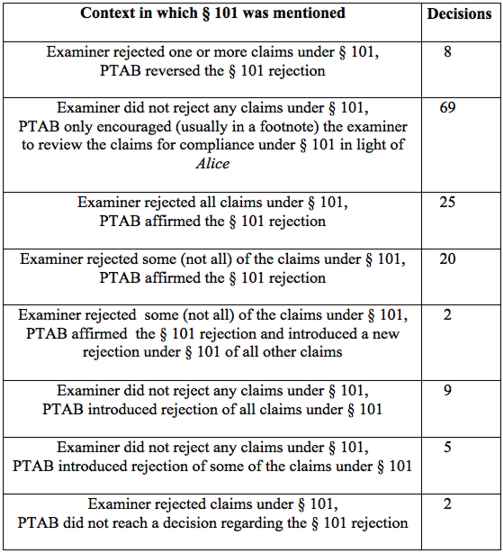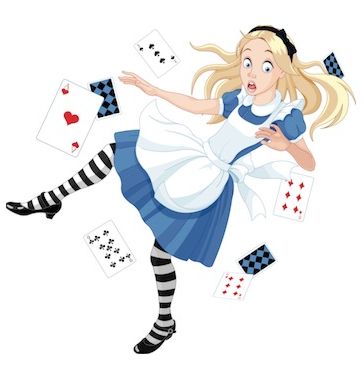| Alice Under Threat |
| Written by Sue Gee |
| Wednesday, 12 July 2017 |
|
In June 2014 the United States Supreme Court ruled that implementing an abstract idea on a computer was insufficient grounds for making it eligible to be patented. Now lobbyists are trying to overturn the so-called Alice opinion, which is supported and defended by the Electronic Frontier Foundation. The ruling was made in Alice Corporation v CLS Bank, a protracted case related to a computerised trading platform, which we had reported on in March 2013, see US Appeals Court Divided Over Software Patent Eligibility. In case you don't know the background here's a potted version Alice Corporation owned four patents on electronic methods and computer programs for for financial-trading systems in which payment is settled by a third party (escrow) in order to reduce the risk that one party will renege while the other doesn't. When it discovered that CLS Bank had started to use similar technology Alice accused CLS Bank of infringing its patent, CSL Bank filed a suit against Alice, seeking judgement that its patents were invalid and unenforceable. Alice countersued for infringements. The initial judgment, made by a Washington DC-based district court in 2007, was that the patents held by Alice were not eligible for patent protection, on the grounds of them being an abstract idea. At the next stage, in 2012, an appeals court judgement reversed the lower court's decision but at this point to Federal Circuit ordered that case be reheard but while the majority of the the panel of ten judges found that the Alice claims were not patent eligible the panel as a whole did not agree on a test to determine whether a computer-implemented invention is an patent-ineligible abstract idea. When the matter moved on to the Supreme Court over fifty amicus curiae briefs urged the Supreme Court to decide the issue of software patent eligibility, but while nearly all of them argued that the Alice patents should be invalidated, they disagreed as to the proper reasoning:
The Supreme Court unanimously invalidated the Alice patents, ruling that an abstract idea could not be patented just because it is implemented on a computer.
According to the Electronic Frontier Foundation, in a post marking the third anniversary of the verdict of Alice v. CLS Bank: Alice has provided a lifeline for real businesses threatened or sued with bogus patents. EEF also highlighted the fact that Alice is under attack by a strong lobby, including Intellectual Property Owners Association and the American Intellectual Property Law Association, which is demanding “stronger” patent laws and, according to EEF, want to: undo Alice v. CLS Bank and return us to a world where “do it on a computer” ideas are eligible for a patent. To gather support, EEF is running a series of stories about individuals and small businesses that have been "Saved by Alice". The other side of the argument, as presented by on IPWatchdog, is that the Alice v. CLS Bank decision: has caused confusion about whether computer-implemented business methods and software innovations are patentable under 35 U.S.C. §101. Note: Title 35 of the United States Code is the one regarding patent law and its section 101 concerns patentable subject matter, thus a section 101 rejection means "not patentable". In an article in September 2015 Eli Mazour and James Bennin reported: Examiners now frequently issue § 101 rejections, based on Alice, by asserting that claims directed to more than mere software and Internet-related innovations are merely directed to abstract ideas that are not patent eligible. After such rejections many patent applicants lodge an appeal with the Patent Trial and Appeal Board (PTAB). A statistical analysis that was made of decisions by PTAB for 140 applications, from a 1-year time period following Alice that mention both Alice and §101, revealed that: nearly half (69) of the 140 decisions, the PTAB indicated that the examiners should consider reviewing the claims for compliance under § 101 in light of Alice. In many of these applications, the examiners are likely to introduce § 101 rejections, in light of Alice, based on current USPTO application of the Alice decision.
Mazour and Benin repeated this analysis with 38 decisions made in December 2016. Whereas previously it had found that examiners introduced § 101 rejections, in light of Alice in the 1-year period after it in only 10% of cases, the proportion had risen to about 40% in December 2016 concluding This clearly demonstrates a growing comfort and willingness by the PTAB to introduce a § 101 rejection even when the examiners did not reject the claims under § 101. One of the avid proponents of the idea that Alice needs to be overturned is Manny Schecter, Chief Patent Counsel and Associate General Counsel at IBM. In an article, Congress Needs to Act So Alice Doesn’t Live Here (in the Patent System) Anymore, he writes: The impact of Alice has been just what one would expect. The decisions of the USPTO examining corps, USPTO Patent Trial & Appeal Board, and lower courts have been wildly inconsistent. Far too many worthy inventions are being lost. Perhaps worse, the predictability innovators and investors in research and development require to effectively navigate the patent system has been eliminated. Change is sorely needed and overdue. Claiming that patents promote innovation, he calls for legislation to deal with the issue. It is worth recalling that when IBM was belatedly granted a patent recently on an "innovation" that was by no means new when the application was made and is now entirely mundane, a system for out of office notification via email, it disclaimed the patent. Discarding Alice would re-open the door to such absurd anomalies and give a field day to patent trolls. Let's have some common sense when it comes to patents so that we can avoid litigation.
More InformationCongress Needs to Act So Alice Doesn’t Live Here (in the Patent System) Anymore PTAB Wonderland: Statistics show Alice PTAB interpretation not favorable to patent applicants Alice on Dulany Street: How the PTAB handles 101 in ex parte appeals Saved by Alice: How a Key Supreme Court Decision Protects Businesses from Bad Patents Related ArticlesUS Appeals Court Divided Over Software Patent Eligibility Patently Ridiculous - Google Ordered To Pay $20 Million Plus Big Increase in AI, Cognitive and Cloud Computing Patents in 2016 Microsoft Enforcing Slider Patent Supreme Court Refuses To Reconsider API Copyright Decision White House Advises That APIs ARE Copyrightable Fujifilm Has A Patent On Converting To Greyscale Google's Open Patent Non-Assertion Pledge To be informed about new articles on I Programmer, sign up for our weekly newsletter, subscribe to the RSS feed and follow us on Twitter, Facebook or Linkedin.
Comments
or email your comment to: comments@i-programmer.info |
| Last Updated ( Wednesday, 16 January 2019 ) |





